#elizabethan poetry
Text
Then came old January, wrapped well
In many weeds to keep the cold away;
Yet did he quake and quiver like to quell,
And blowe his nayles to warme them if he may:
For they were numbd with holding all the day
An hatchet keene, with which he felled wood,
And from the trees did lop the needlesse spray:
Upon an huge great earth-pot steane he stood,
From whose wide mouth there flowed forth the Romane floud.
~ Edmund Spenser, The Faerie Queen
#edmund spenser#the faerie queene#quotes#british literature#british lit#english literature#english lit#british author#english author#british poetry#english poetry#poetry#classic literature#classic lit quotes#classic poetry#classic literature quotes#poetry quotes#elizabethan era#elizabethan poetry#16th century literature#16th century poetry#16th century#january#january quotes#seasonal poetry#seasonal quotes#e
11 notes
·
View notes
Text
A poem by Sir Walter Raleigh
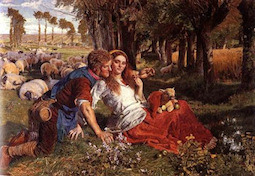
The Nymph’s Reply to the Shepherd
If all the world and love were young,
And truth in every shepherd's tongue,
These pretty pleasures might me move
To live with thee and be thy love.
Time drives the flocks from field to fold
When Rivers rage and Rocks grow cold,
And Philomel becometh dumb;
The rest complains of cares to come.
The flowers do fade, and wanton fields
To wayward winter reckoning yields;
A honey tongue, a heart of gall,
Is fancy's spring, but sorrow's fall.
Thy gowns, thy shoes, thy beds of roses,
Thy cap, thy kirtle, and thy posies
Soon break, soon wither, soon forgotten:
In folly ripe, in reason rotten.
Thy belt of straw and Ivy buds,
Thy coral clasps and amber studs,
All these in me no means can move
To come to thee and be thy love.
But could youth last and love still breed,
Had joys no date nor age no need,
Then these delights my mind might move
To live with thee and be thy love.

Sir Walter Raleigh
(1552–1618)
Raleigh's poem is a response to a poem by Christopher Marlowe entitled The Passionate Shepherd to his Love.
3 notes
·
View notes
Photo
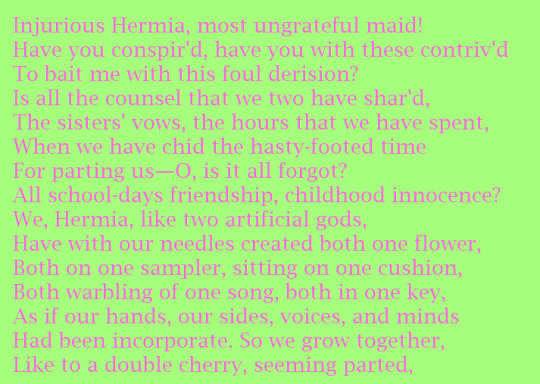

Monologue of the character Helena to Hermia, from William Shakespeare’s A Midsummer Night’s Dream, a fantasy romantic comedy written in the 1590s, one of the earlier plays of his career and one of only a few with no prior literary or historical source for the plot
Expressions of same-sex affection can be found throughout Shakespeare’s sonnets and plays, including The Merchant of Venice, As You Like It, Twelfth Night, Coriolanus, and Two Noble Kinsmen. However, the Renaissance did not have the modern concepts of sexual identity and sexual orientation that we have inherited from 19th- and early 20th-century theories of human sexuality and psychology. Hence nobody in this period would have conceived of themselves in terms of modern sexual categories such as heterosexual and homosexual, or gay and straight. The challenge in reading passages such as this is to understand the personal, social, and political significance of same-sex relationships in Renaissance culture without applying anachronistic labels or standards of judgment. In Renaissance England, intimate relationships between women were generally accepted as long as they did not interfere with the women’s conventional sexual and social duties: getting married, having children, maintaining chastity, and behaving in an appropriately feminine manner. In A Midsummer Night’s Dream and As You Like It, adolescent female friendships finally give way to the new bonds between husbands and wives that signal entry into adulthood. However, being married did not prevent adult women from maintaining or establishing affectionate intimacies with other women through relationships of friendship, patronage, or service.
—Annotation in Barnes and Noble Shakespeare’s edition of the play (the first edition I read when I was seventeen), edited by Mario DiGangi
#this annotation i used to reread and reread because it made me feel very valid#there was literally a dent in the book on this page. not bc i bent it but because i opened it to this spot so much hahahaha#i kept a thick bookmark in it too#a midsummer night's dream#shakespeare#william shakespeare#influences#monologue#elizabethan theater#renaissance poetry#renaissance theater#elizabethan poetry#romantic comedy#sapphic poetry#queer literature#helena and hermia were gay and the entire world just has to live w it#important for personal historical context but this was the first shakespeare play i ever read on my own and it's still my favorite#tied w the tempest with a&c as an honorable third place#i used to think this play kept being my favorite bc the b&n edition was so good and approachable for my reading level#when i first got the riverside shakespeare (1973) from my grandmother. i read like five or six plays in the next six months or so#(maybe more? i forget. i dont wanna go back and count it's not that significant the point is i was bingeing)#but i thought the riverside shakespeare might've just been a little too 'scholarly' for me and that's why midsummer kept being my top#but it really is just one of my favorite pieces of art ever fathomed... perfectly psychedelic and original and dianacore#much of the originality and imagination that i love in this play it also has in common w the tempest which is why they're tied#sigh... i could talk about those plays forever
14 notes
·
View notes
Text

Astrophel and Stella by Sir Phillip Sidney.
#english sonnet#sonnets#elizabethan poetry#elizabethan sonnet#sir philip sidney#love sonnets but make it elizabethan and love that is too late#call it hurt no comfort#ALSO!!! READ THE WHOLE SONNETS
1 note
·
View note
Text
My bounty is as boundless as the sea,
My love as deep. The more I give to thee,
The more I have, for both are infinite.
Juliet, to her Romeo, by William Shakespeare
11 notes
·
View notes
Text
“Here have I cause, in men just blame to find,
That in their proper prayse too partiall bee,
And not indifferent to woman kind,
To whom no share in armes and chevalrie
They do impart, ne maken memorie
Of their brave gestes and prowess martiall;
Scarse do they spare to one or two or three,
Rowme in their writs; yet the same writing small
Does all their deeds deface, and dims their glories all,
But by record of antique times I find,
That women wont in warres to beare most sway,
And to all great exploits them selves inclind:
Of which they still the girlond bore away,
Till envious Men fearing their rules decay,
Gan coyne straight laws to curb their liberty;
Yet sith they warlike armes have layd away:
They have exceld in artes and policy,
That now we foolish men that prayse gin eke."
2 notes
·
View notes
Text
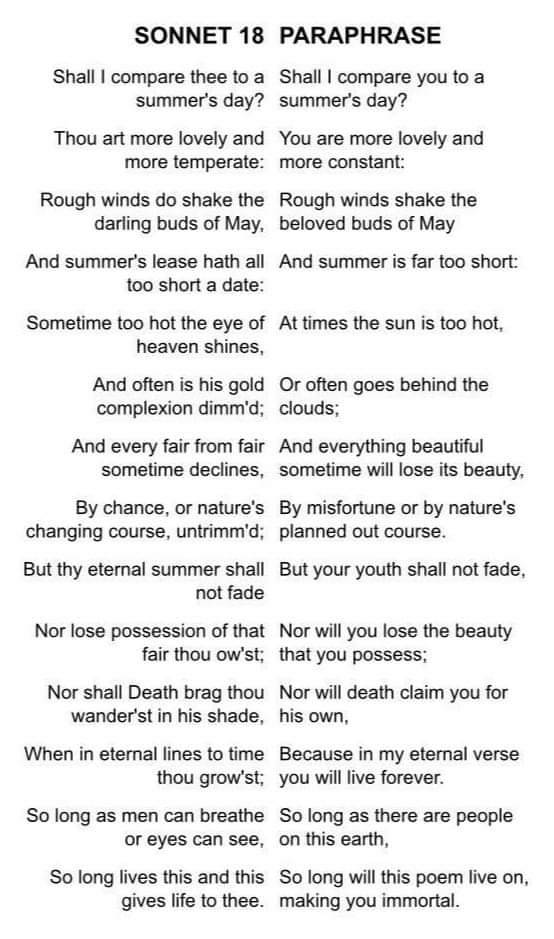
#shakespeare#sonnet#paraphrase#literature#image#poetry#sonnet 18#shall i compare thee to a summers day#british literature#elizabethan age#teacher#teaching#learning#learn#high school#ela
8 notes
·
View notes
Text
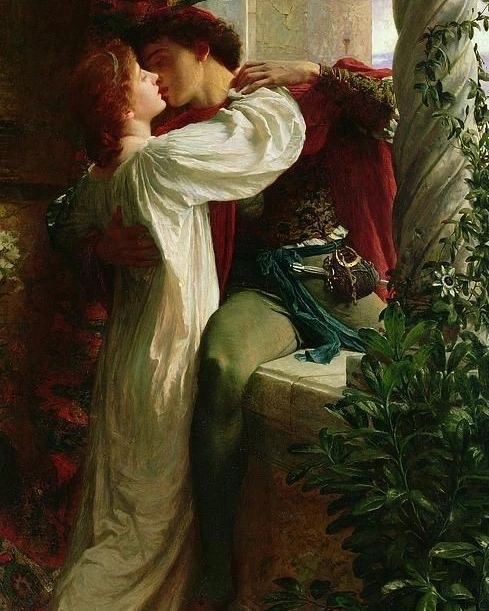
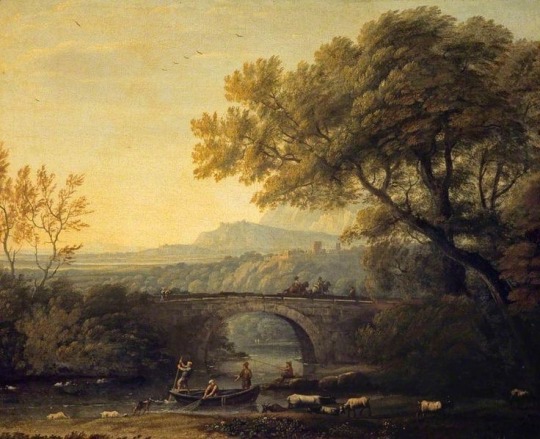

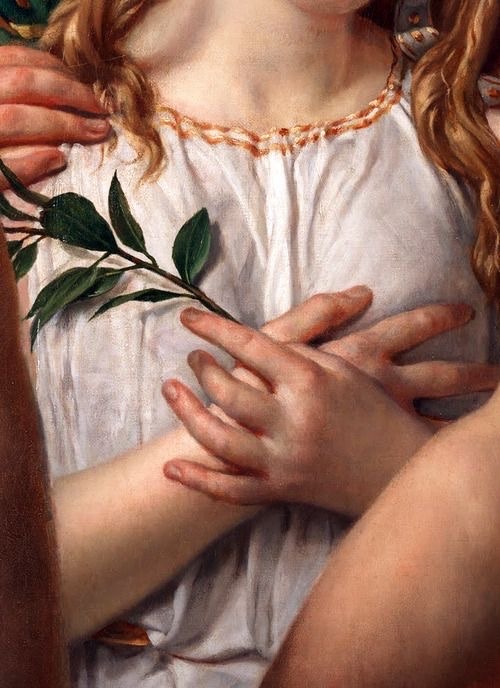


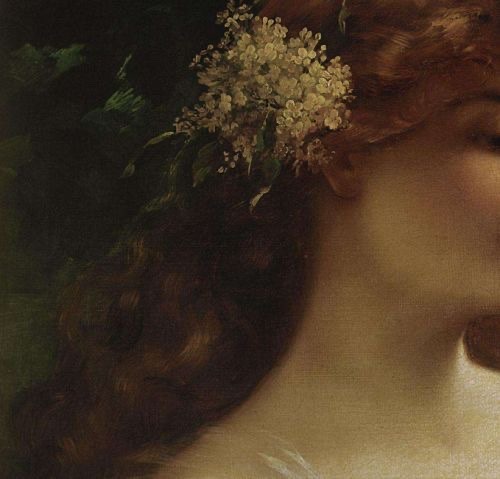

‘Like to a painted map the landscape lies
And wild above shine the cloud-thronged skies
The flying clouds urged on in swiftest pace
Like living things as if they runned a race’
-from The Shepherd’s Calendar: October by John Clare
#romanticism#literature#poetry#neo classicism#neo classical#william shakespere#shakespeare#light academia#gothic literature#romantic literature#romantic movement#elizabethan#medieval#medieval literature#john clare#romantic poetry#romantic art#gothic lit art#classical art#gothic art#art#faerie#fae folk#forestcore#cottagecore#softcore#coquette#flora and fauna
3 notes
·
View notes
Text
“She bath’d with roses red and violets blew,
And all the sweetest flowers that in the forrest grew.”
Edmund Spenser, The Faerie Queene
15 notes
·
View notes
Text



Clowns: Shakespeare was so tawdry and dirty and profane!1!1!1!
Shakespeare’s Actual Contemporaries: He writes the most beautiful lines, I can’t 😭😭😭😭😭😭😭Wish he’d write about other things than love, though. What’s that? He actually wrote some killer tragedies and fun stage comedies? Oh. Yeah, I guess he does that. Still, his style is super sweet. So sweet. Sweet as honey. 8/10, ngl kinda basic
#william shakespeare#shakespeare clown takes#shakespeare clownery#shakespeare is a kindergarten teacher compared to his contemporaries#i said what i said#those jigs are nastier and more profane than any play of his#hell shakespeare doesn’t have so much of a ‘fuck’#and that word existed back then!!!!#if i have to read how shakespeare’s writing style is like honey one more time—!#but yeah it’s like a hive mind#‘sweet shakespeare!!!! honey-tongued shakespeare!!!!’#and back then elizabethan poetry was sweet!!!#so then saying it about shakespeare means something#life of will
4 notes
·
View notes
Text
Weep You No More, Sad Fountains
Weep you no more, sad fountains;
What need you flow so fast?
Look how the snowy mountains
Heaven’s sun doth gently waste.
But my sun’s heavenly eyes
View not your weeping,
That now lie sleeping
Softly, now softly lies
Sleeping.
Sleep is a reconciling,
A rest that peace begets.
Doth not the sun rise smiling
When fair at even he sets?
Rest you then, rest, sad eyes,
Melt not in weeping
While she lies sleeping
Softly, now softly lies
Sleeping.
— John Dowland
3 notes
·
View notes
Text
A poem by Edmund Spenser

Prothalamion
Calme was the day, and through the trembling ayre
Sweete-breathing Zephyrus did softly play
A gentle spirit, that lightly did delay
Hot Titans beames, which then did glyster fayre;
When I, (whom sullein care,
Through discontent of my long fruitlesse stay
In Princes Court, and expectation vayne
Of idle hopes, which still doe fly away,
Like empty shaddowes, did afflict my brayne,)
Walkt forth to ease my payne
Along the shoare of silver streaming Themmes;
Whose rutty Bancke, the which his River hemmes,
Was paynted all with variable flowers,
And all the meades adornd with daintie gemmes
Fit to decke maydens bowres,
And crowne their Paramours
Against the Brydale day, which is not long:
Sweete Themmes! runne softly, till I end my Song.
There, in a Meadow, by the Rivers side,
A Flocke of Nymphes I chauncèd to espy,
All lovely Daughters of the Flood thereby,
With goodly greenish locks, all loose untyde,
As each had bene a Bryde;
And each one had a little wicker basket,
Made of fine twigs, entrayl`d curiously,
In which they gathered flowers to fill their flasket,
And with fine Fingers cropt full feateously
The tender stalkes on hye.
Of every sort, which in that Meadow grew,
They gathered some; the Violet, pallid blew,
The little Dazie, that at evening closes,
The virgin Lillie, and the Primrose trew,
With store of vermeil Roses,
To decke their Bridegromes posies
Against the Brydale day, which was not long:
Sweete Themmes! runne softly, till I end my Song.
With that I saw two Swannes of goodly hewe
Come softly swimming downe along the Lee;
Two fairer Birds I yet did never see;
The snow, which doth the top of Pindus strew,
Did never whiter shew;
Nor Jove himselfe, when he a Swan would be,
For love of Leda, whiter did appeare;
Yet Leda was (they say) as white as he,
Yet not so white as these, nor nothing neare;
So purely white they were,
That even the gentle streame, the which them bare,
Seem'd foule to them, and bad his billowes spare
To wet their silken feathers, least they might
Soyle their fayre plumes with water not so fayre,
And marre their beauties bright,
That shone as heavens light,
Against their Brydale day, which was not long:
Sweete Themmes! runne softly, till I end my Song.
Eftsoones the Nymphes, which now had Flowers their fill,
Ran all in haste to see that silver brood,
As they came floating on the Christal Flood;
Whom when they sawe, they stood amazèd still,
Their wondring eyes to fill;
Them seem'd they never saw a sight so fayre,
Of Fowles, so lovely, that they sure did deeme
Them heavenly borne, or to be that same payre
Which through the Skie draw Venus silver Teeme;
For sure they did not seeme
To be begot of any earthly Seede,
But rather Angels, or of Angels breede;
Yet were they bred of Somers-heat, they say,
In sweetest Season, when each Flower and weede
The earth did fresh aray;
So fresh they seem'd as day,
Even as their Brydale day, which was not long:
Sweete Themmes! runne softly, till I end my Song.
Then forth they all out of their baskets drew
Great store of Flowers, the honour of the field,
That to the sense did fragrant odours yield,
All which upon those goodly Birds they threw
And all the Waves did strew,
That like old Peneus Waters they did seeme,
When downe along by pleasant Tempes shore,
Scattred with Flowres, through Thessaly they streeme,
That they appeare, through Lillies plenteous store,
Like a Brydes Chamber flore.
Two of those Nymphes, meane while, two Garlands bound
Of freshest Flowres which in that Mead they found,
The which presenting all in trim Array,
Their snowie Foreheads therewithall they crownd,
Whil'st one did sing this Lay,
Prepar'd against that Day,
Against their Brydale day, which was not long:
Sweete Themmes! runne softly, till I end my Song.
'Ye gentle Birdes! the worlds faire ornament,
And heavens glorie, whom this happie hower
Doth leade unto your lovers blisfull bower,
Joy may you have, and gentle hearts content
Of your loves couplement;
And let faire Venus, that is Queene of love,
With her heart-quelling Sonne upon you smile,
Whose smile, they say, hath vertue to remove
All Loves dislike, and friendships faultie guile
For ever to assoile.
Let endlesse Peace your steadfast hearts accord,
And blessèd Plentie wait upon your bord;
And let your bed with pleasures chast abound,
That fruitfull issue may to you afford,
Which may your foes confound,
And make your joyes redound
Upon your Brydale day, which is not long:
Sweete Themmes! runne softlie, till I end my Song.'
So ended she; and all the rest around
To her redoubled that her undersong,
Which said their brydale daye should not be long:
And gentle Eccho from the neighbour ground
Their accents did resound.
So forth those joyous Birdes did passe along,
Adowne the Lee, that to them murmurde low,
As he would speake, but that he lackt a tong,
Yet did by signes his glad affection show,
Making his streame run slow.
And all the foule which in his flood did dwell
Gan flock about these twaine, that did excell
The rest, so far as Cynthia doth shend
The lesser starres. So they, enrangèd well,
Did on those two attend,
And their best service lend
Against their wedding day, which was not long:
Sweete Themmes! runne softly, till I end my Song.
At length they all to mery London came,
To mery London, my most kyndly Nurse,
That to me gave this Lifes first native sourse,
Though from another place I take my name,
An house of auncient fame:
There when they came, whereas those bricky towres
The which on Themmes brode agèd backe doe ryde,
Where now the studious Lawyers have their bowers,
There whylome wont the Templer Knights to byde,
Till they decayd through pride:
Next whereunto there standes a stately place,
Where oft I gaynèd giftes and goodly grace
Of that great Lord, which therein wont to dwell,
Whose want too well now feeles my freendles case;
But ah! here fits not well
Olde woes, but joyes, to tell
Against the Brydale daye, which is not long:
Sweete Themmes! runne softly, till I end my Song.
Yet therein now doth lodge a noble Peer,
Great Englands glory, and the Worlds wide wonder,
Whose dreadfull name late through all Spaine did thunder,
And Hercules two pillors standing neere
Did make to quake and feare:
Faire branch of Honor, flower of Chevalrie!
That fillest England with thy triumphes fame,
Joy have thou of thy noble victorie,
And endlesse happinesse of thine owne name
That promiseth the same;
That through thy prowesse, and victorious armes,
Thy country may be freed from forraine harmes;
And great Elisaes glorious name may ring
Through al the world, fil'd with thy wide Alarmes,
Which some brave muse may sing
To ages following,
Upon the Brydale day, which is not long:
Sweete Themmes! runne softly till I end my Song.
From those high Towers this noble Lord issuing,
Like Radiant Hesper, when his golden hayre
In th' Ocean billowes he hath bathèd fayre,
Descended to the Rivers open vewing,
With a great traine ensuing.
Above the rest were goodly to bee seene
Two gentle Knights of lovely face and feature,
Beseeming well the bower of anie Queene,
With gifts of wit, and ornaments of nature,
Fit for so goodly stature,
That like the twins of Jove they seem'd in sight,
Which decke the Bauldricke of the Heavens bright;
They two, forth pacing to the Rivers side,
Received those two faire Brides, their Loves delight;
Which, at th' appointed tyde,
Each one did make his Bryde
Against their Brydale day, which is not long:
Sweete Themmes! runne softly, till I end my Song.

Edmund Spenser
(1552-1599)
2 notes
·
View notes
Text
I refuse to believe Shakespeare was straight
6 notes
·
View notes
Photo

“Captured Queen” - a Shakespearean sonnet written 10/24/2022
#2022#college years#poetry#poem#poets on tumblr#iambic pentameter#iambic meter#sonnet#shakespearean sonnet#english sonnet#elizabethan sonnet
3 notes
·
View notes
Text

"Ulysees and the Siren" (1605) by Samuel Daniel. The poem continues as a dialogue with Ulysees' reply but honestly I think the Siren presents a solid argument here.
#ulysees and the siren#samuel daniel#poetry#16th century#mythical creatures#siren song#elizabethan#english poetry#english literature
2 notes
·
View notes
Text
„The Dream“ - A Poem by Aphra Behn
„The Dream“ – A Poem by Aphra Behn
Aphra Behn (1640–1689) was an English playwright, poet, prose writer and translator from the Restoration era. As one of the first English women to earn her living by her writing, she broke cultural barriers and served as a literary role model for later generations of women authors. Rising from obscurity, she came to the notice of Charles II, who employed her as a spy in Antwerp. Upon her return…

View On WordPress
4 notes
·
View notes